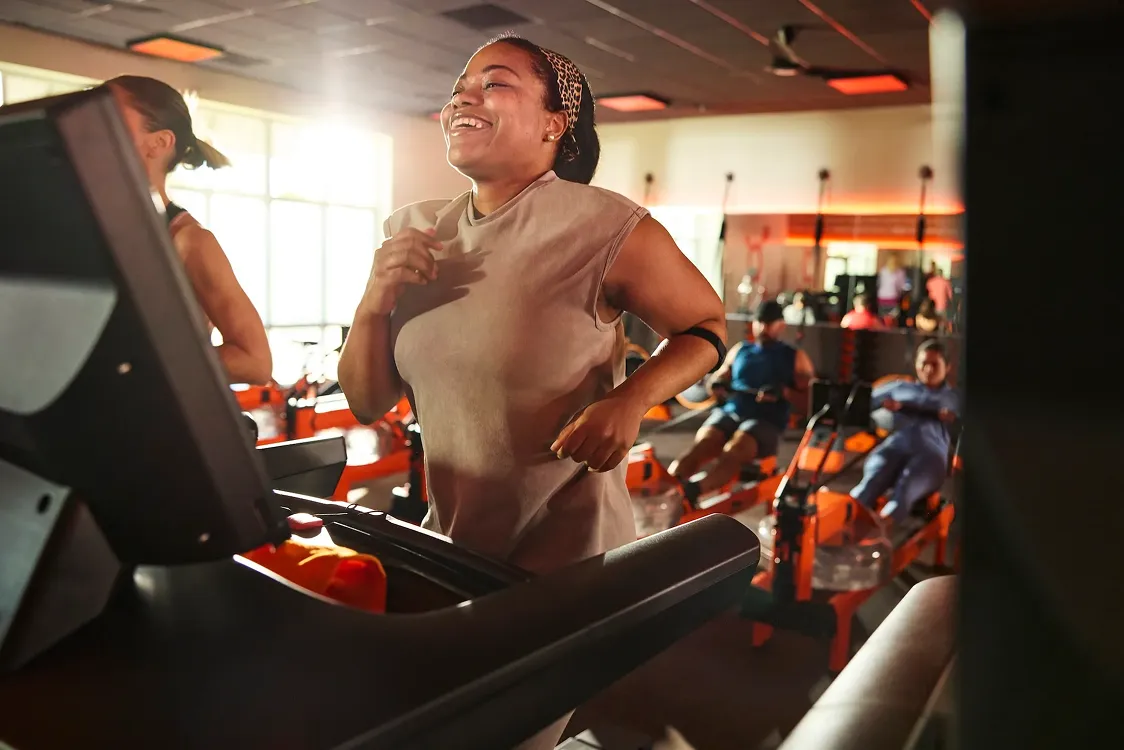
Burn Fat.
Build Muscle.
Experience the strength & cardio workout that delivers results that you can see and feel from the inside out.
FSA/HSA eligible
Orangetheory combines full-body strength training with heart-pumping cardio to help you build strength now, while laying the foundation for long-term health.
In weeks, most members notice the shift: more energy, a better mood, and real momentum. On average, members lose 8.6% body fat and gain 2.6% lean muscle from 18 classes in just 8 weeks.1 That kind of progress is why millions of members across 1,500 studios worldwide have chosen Orangetheory to achieve their fitness goals.
Not your thing after 30 days? No sweat—we’ll refund your money.†








You don’t need to be fit to get started. Just show up—we’ve got you. With expert coaching and OTconnect™ technology, every workout adjusts to your fitness level and your goals. Whether you’re easing in or pushing hard, we meet you with encouragement and support—not pressure. Every step forward builds a body—and mindset—that’s stronger than yesterday.



*The “Free Class” offer is open only to first-time visitors and local residents aged 18 years and older; however, minors aged 14 and above may participate if special conditions are met. Valid at participating studios only. Conditions apply. See studios for details. Recommended retail price of a casual visit is $35; however, prices do vary, as each studio is individually owned and operated. Offer may be subject to satisfactory completion of pre-exercise screening and/or standard temporary/guest membership terms. Restrictions may apply; inquire at local studio for additional information.
1Based on internal Orangetheory data from over 3,000 members who participated in an 8-week Transformation Challenge, measuring average fat loss and lean muscle gain. Supported by third-party findings in Quindry et al., 2021: “Physiologic and Psychologic Responses to a High Intensity Functional Training Program.” Journal of Exercise Physiology Online, 24(2), 79–91.
†Offer limited to Premier members who complete 12 sessions within a month of membership start date. All sessions must be at the member’s home studio. Member must notify their home studio within 30 days of membership start date to initiate cancellation and receive refund of membership dues. OTBeat® sales are not refundable. Restrictions may apply; inquire at local studio for additional information.
§New members only, additional restrictions may apply, inquire at local studio for more information.